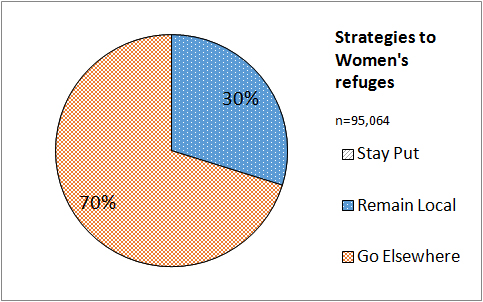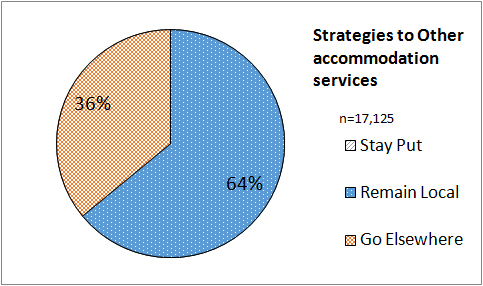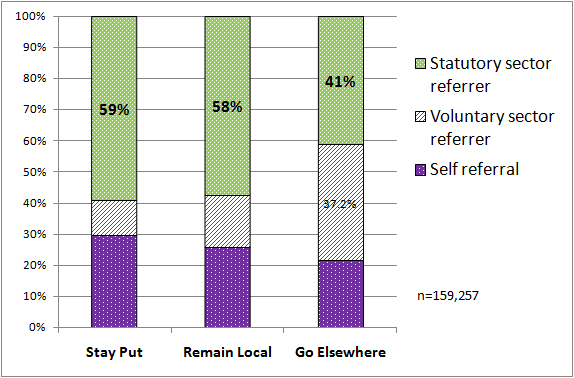Three little words could determine the fate of thousands of women and children experiencing domestic abuse.
And not in a good way…
Three little words – sent out by National Government – but interpreted by Local Government – will affect whether or not women and children can escape domestic violence.
Cross-border support.
The three words are slipped in – almost as if they were an afterthought – in the Home Office information on the Domestic Abuse Bill 2020.
A statutory duty will be placed on Local Authorities in England to “Assess the need for accommodation-based domestic abuse support for all victims in their area, including those who require cross-border support”[1].
There are at least three major problems with this:
- Specialist accommodation-based domestic abuse services are mostly used by non-local women and children. Whilst other types of support services and temporary accommodation may be frequently accessed by local women who need to leave their previous accommodation, refuges are distinctively – and vitally – accessed by women and children who cannot remain local because of the risks they face.


Pie charts of Help-seeking strategies to Women’s Refuges and Other accommodation services[2]
- The proposed duty could therefore easily have the effect of undermining and reducing the provision of women’s refuges, and switching local authority funding to other accommodation – including non-specialist, low-support, mixed accommodation.
- Many women and children affected by domestic abuse seek help from non-accommodation services. However, the proposed duty is silent on this; ignoring the fact that tens of thousands of women and children need specialist one-to-one and group support in their local area because of the violence they have experienced. There have been urgent calls for the Government to address this major gap, but no response as yet[3].
- The proposed accommodation duty could therefore easily have the effect of cutting these vital non-accommodation services by switching local authority funding to the only services they will now have to provide.
- Local Authorities are not well-placed to assess the need for accommodation-based domestic abuse support in their area because cross-border support isn’t a minor role for these services; it is the key option they provide for women and children experiencing threats, abuse and violence. Most women who go to these services do not go via their Local Authority at all – they cross borders as part of secret journeys, frequently facilitated by voluntary sector agencies that they trust to keep their relocation secret; and not referred by statutory agencies. For every cross-border statutory referral, that a Local Authority might know about and assess, there are more than double these which do not come to the notice of a statutory agency.

Graph of self-referrals and referrals and the three help-seeking strategies[2]
Simply put, Local Authorities know very little about women’s cross-border help-seeking, and they have a perverse incentive to under-estimate it in their needs assessment of what services they will provide.
If the National Government really wants to “help transform the response to domestic abuse, helping to prevent offending, protect victims and ensure they have the support they need”[4], it must take national responsibility for assessment, funding and provision of specialist services for women and children who have to cross borders due to domestic violence; and it must require Local Authorities to provide the range and capacity of services needed by women and children who stay put or remain local.
[1] https://www.gov.uk/government/publications/domestic-abuse-bill-2020-factsheets/local-authority-support-for-victims-of-domestic-abuse-and-their-children-within-safe-accommodation-factsheet
[2] Analysis by Janet C. Bowstead using data from Department for Communities and Local Government and University of St Andrews, Centre for Housing Research (2012) Supporting People Client Records and Outcomes, 2003/04-2010/11: Special Licence Access [computer file]. Colchester, Essex, UK Data Archive [distributor]. Available from: http://dx.doi.org/10.5255/UKDA-SN-7020-1
[3] https://www.childrenscommissioner.gov.uk/2021/02/02/our-joint-call-on-the-government-to-include-a-statutory-duty-on-local-authorities-to-fund-community-based-services-in-the-domestic-abuse-bill/
[4] https://www.gov.uk/government/publications/domestic-abuse-bill-2020-factsheets/domestic-abuse-bill-2020-overarching-factsheet
